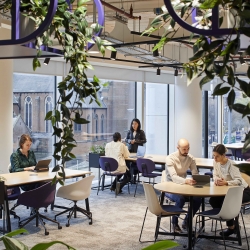July 22, 2023
Flexible working bill gains royal assent, but doubts remain
Employees across the UK will be given even more flexibility over where and when they work, according to the government, as the Employment Relations (Flexible Working) Bill receives Royal Assent. Originally a 2019 manifesto commitment to encourage flexible working, and now a private members bill from Labour MP Yasmin Qureshi, the Act will require employers to consider and discuss any requests made by their employee – who will have the right to two requests a year – within two months of a request, down from three.
However some employment law experts have highlighted some of the Act’s limitations. “It is absolutely crucial to bear in mind that this is still only a right to request – not a right to receive flexible working’, warns Hina Belitz, Partner and employment law specialist at Excello Law. “In that sense, in order to assess its efficacy and whether it will truly make a difference to the day-to-day lives of employees struggling with flexibility issues, we need further information and consideration on whether this will actually lead more people to get the flexibility they need.”Will we just see employers get better at finding clever and ostensibly fair ways to refuse these things? Will we see an increase in discrimination or similar claims linked to supposedly unfair refusals of flexible working requests? Potentially, which may prove a strain on our already full to bursting employment tribunal system.”
CIPD research shows that 6 percent of employees changed jobs last year specifically due to a lack of flexible options and 12 percent left their profession altogether due to a lack of flexibility within the sector. This represents almost 2 and 4 million workers respectively.
Workers will benefit from the following new protections once the Act is in force:
- New requirements for employers to consult with the employee before rejecting their flexible working request.
- Permission to make two statutory requests in any 12-month period (rather than the current one request).
- Reduced waiting times for decisions to be made(within which an employer administers the statutory request) from three months to two months.
- The removal of existing requirements that the employee must explain what effect, if any, the change applied for would have on the employer and how that effect might be dealt with.
Alongside the measures in the Bill, millions of workers will be given the right to request flexible working from day one of a new job. This will bring an estimated 2.2 million more employees in scope of the entitlement following a change in regulations.
The Government is also today launching a call for evidence on non-statutory flexible working to improve on knowledge of the extent of flexibility in the labour market. The aim is to increase understanding of the role of informal flexible working in meeting the needs of both employers and employees.
In response to this legislation, Acas will be updating its statutory Code of Practice following a consultation, which was launched on 12 July. The aim of the Code is to provide employers, employees and representatives with a clear explanation of the law on the statutory right to request flexible working, alongside good practice advice on handling requests in a reasonable manner.







































